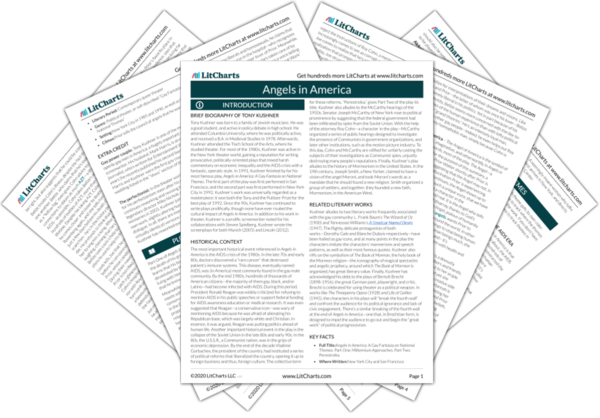In the late 80s and early 90s, the President of the Soviet Union, Mikhail Gorbachev, instituted a series of liberal reforms in his country, which were collectively referred to as “perestroika.” These reforms allowed for greater freedom of speech, more international business investment, etc., and were hailed as proof that the Soviet Union was finally embracing the “Western values” of freedom and democracy. In a broader sense, perestroika could also be said to symbolize change in all its excitement, uncertainty, and danger. While many were optimistic about Gorbachev’s reforms, it was pointed out that perestroika wouldn’t necessarily “cure” Russia of its human rights problems. By titling the second half of his play “Perestroika,” Kushner sets the tone for a play about precisely this combination of excitement and danger: we get the sense that something is about to happen (some prophecy, some cure for AIDS, some resolution to the plot), but we don’t know—and don’t know if we want to know—what this something is.
Perestroika Quotes in Angels in America
The Great Question before us is: Can we Change? In Time? And we all desire that Change will come.










